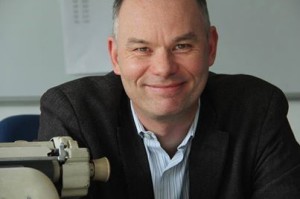Degrees of freedom: Shaping the internet’s future
 The fourth Freedom Online Conference Free and Secure Internet for All will be held in Tallinn, Estonia, from April 28th to 29th 2014 (#FOC14). This conference will bring together high-ranking representatives from the 22 member states of the Freedom Online Coalition – among them the US, Germany, Brazil and host Estonia. They will join up with a large number of civil society actors ranging from NGOs promoting internet freedom to large companies with a vested interest in all things internet like Google.
The fourth Freedom Online Conference Free and Secure Internet for All will be held in Tallinn, Estonia, from April 28th to 29th 2014 (#FOC14). This conference will bring together high-ranking representatives from the 22 member states of the Freedom Online Coalition – among them the US, Germany, Brazil and host Estonia. They will join up with a large number of civil society actors ranging from NGOs promoting internet freedom to large companies with a vested interest in all things internet like Google.
DW Akademie’s Holger Hank highlights the four most pressing issues from the perspective of media freedom.
Internet Principles
Do we need a Declaration of Internet Rights? Do people, for instance, have the same rights online that they have offline? There is currently a lot of debate about establishing a political consensus on what is allowed, accepted, and wanted on the Internet. Such a widely accepted list of principles would serve as a point of reference for national and international rules and regulations – but also for individuals whose right to free expression online is jeopardized.
Here are some key points that should be included in such a list:
- Keep the internet a global entity that should not be separated into different (e.g. regional or national) networks;
- Participation by all interested parties in Internet governance discussions and decision-making. This means that not only Governments should have a say but civil society and business actors as well;
- Privacy online should protected as much as possible;
- Access to the Internet should be non-discriminatory and transparent.
Surveillance
Following the NSA scandal the issue of online surveillance is still shaking up the online world. Under what circumstances do governments have the right to spy on online communication of their own and foreign citizens? After an intense debate at the recent NetMundial Meeting on the Future of Internet Governance in São Paulo, the organizers settled on saying the right to privacy means freedom from arbitrary and unlawful surveillance. This angered many online activists in São Paulo who had pushed for a stronger statement against mass-surveillance on the Internet. The issue of online eavesdropping is of immense importance if the Internet’s promise of more freedom and participation is to be fulfilled. After all, if you cannot trust that your personal communication remains private, more and more people will shy away from the Internet. Journalists and media activists especially have a lot to loose if the Internet becomes a place of state control rather than free expression.
For the Freedom Online Coalition this issue is particularly tricky: One of its members, the United States, is the biggest culprit in the NSA scandal and doesn’t want to restrict its surveillance activities – especially of non-US citizens.
Net Neutrality
Net neutrality means that Internet service providers and governments should treat all data on the Internet equally. For example, paying content producers shouldn’t get preferential treatment, thereby making it more cumbersome to access content by small and independent publishers. This could in practice restrict the freedom of expression online. Net neutrality was a very controversial topic at the NetMundial Internet Governance Meeting and no agreement was reached. Prediction: Intense lobbying by big internet infrastructure and content providers will lead to some form of traffic discrimination within the next two years. Without safeguards this could limit access and make it more difficult for independent voices to find an audience on the Internet.
Who runs the Internet? ICANN 2.0
The Internet Corporation for Assigned Names and Numbers (ICANN) is an US-based nonprofit organization that coordinates the Internet’s global domain name system which is one of the crucial building blocks of online communication. The United States has recently announced that it would like to transfer ICANN to a yet undefined international body. In the aftermath of the Edward Snowden NSA revelations this sounds like a good idea, but the big question is: what is to replace the US-centered oversight? Perhaps the United Nations? That could give countries with a long history of internet censorship like China more influence on the Internet’s technical architecture. Bad news from the perspective of Internet Freedom. However, setting up an international organization that can act as independently as possible from state interference and safeguard free internet access and usage is going to be very complicated. Expect the US to stay in charge for some time to come. And maybe that’s not so bad after all.
Holger Hank is the head of the digital division at DW Akademie where he oversees the implementation of the ICT-based learning and communication infrastructure. You can follow Holger on Twitter: @holgerhank




